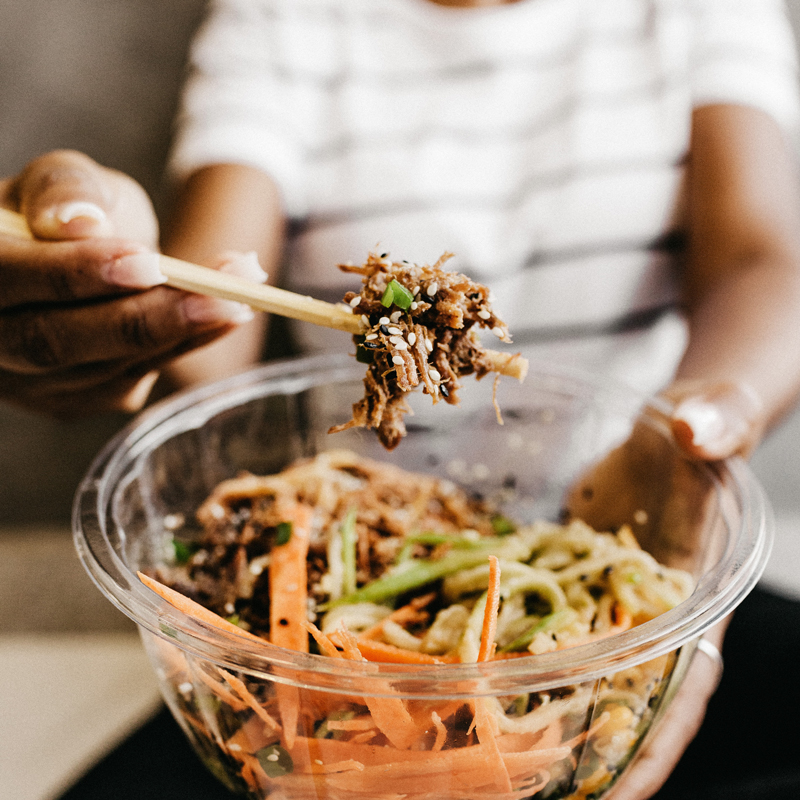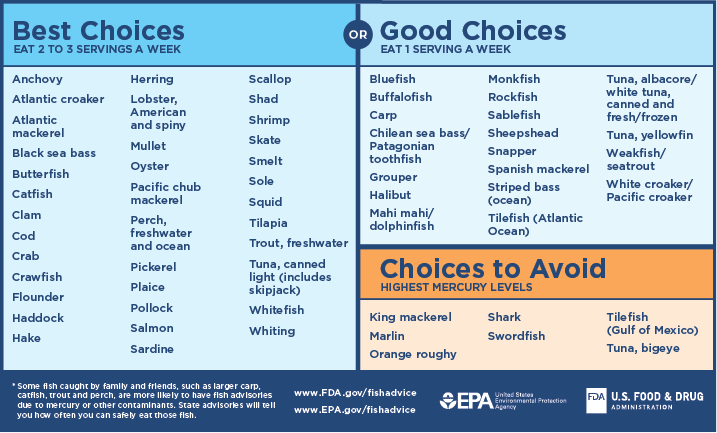Food Safety during Pregnancy

Really? No lunch meat or sushi during pregnancy, and I can’t touch kitty litter??
There are TONS of rules about what you should – and shouldn’t – be doing during your pregnancy. Perhaps you’ve already been admonished by an annoying coworker (remember coworkers?) for eating sushi, or received an unwanted lecture from some stranger from under their masks about the dangers lurking inside a turkey sandwich.
The truth of the matter is that the majority of miscarriages, stillbirths, and birth defects occur for reasons that are totally outside of your control. This will either give you comfort or totally freak you out; hopefully it’s the former.
As it turns out, many of the pregnancy police rules come not from actual data or studies, but from the “why-take-a-chance” philosophy that pervades American medicine, no matter how infinitesimal the actual risk. (Why not install a meteorite-guard on your house???…)
First, a biology lesson.
Mr. (or Ms.) Fetus
For moms carrying your own egg, only half of your tiny peanut is identical to your own biology (the other half belonging to your inseminator — otherwise known as your husband, boyfriend, guy at the bar that night, or, actual sperm donor).
Because of this dissimilarity, your little ball of baby cells would normally be rejected by your body’s own immune system (much like with a transplanted organ). Thankfully, our immune systems have evolved to know NOT to attack the developing fetus.
Essentially, your whole immune system lets down its guard for the duration of your pregnancy. As a result, pregnant women are more vulnerable to nasty stuff. This helps explain why you’ll get every strain of cold under the moon during the 3rd trimester, even if you are normally quite healthy.
So, which of the rules are justifiable and which aren’t? Let’s have a look.
Listeria Hysteria
Listeria is the big bad bacteria that you want to avoid during pregnancy, mainly because it can cross the placental barrier and infect the fetus, which can result in miscarriage or fetal death.
True, pregnant women are about 20 times more likely to get listeria than non-pregnant women, but EVEN SO, it is EXTREMELY rare, infecting only about 1 in 8,000 pregnancies per year.
For the sake of comparison, your lifetime chance of dying in a car accident is about 1 in 500.
It should also be noted that most listeria infections in pregnancy occur in the 3rd trimester, when suppression of Th1-mediated immunity is at its maximum.
The highest-risk foods for listeria are preserved fish (lox and stuff), cheese from unpasteurized milk, deli meats, pâté (pa-TAAAAAY), and undercooked hot dogs. Stuff like that.
But here’s the thing — any food that’s been indicted for carrying a possible listeria contamination in the last 20+ years seems to automatically get added to the “no-no” list. Celery, turkey, carrots, cantaloupe, etc. This doesn’t make any sense. Just because last year, packaged spinach was the culprit doesn’t tell you anything about a possible contamination this season, because it’s totally unpredictable. Some even suggest that eating a food (a particular soft cheese, say) that was associated with a previous listeria outbreak is actually safer because it’s statistically unlikely it would be contaminated yet again (not to mention, safety regulations).
Bottom line: With those kinds of odds, you should worry more about your driving than your turkey sandwich.
Sushi During Pregnancy
Most American OBs say, “No sushi for you!” However, if you look at the data, 85% of seafood illness comes from eating raw shellfish – that’s right, bivalve mollusks, namely, raw oysters and clams.
If you remove those foods from the equation, the risk of falling ill from eating seafood is 1 in 2 million servings. [By comparison, the risk from eating chicken is 1 in 25,000.] So… can we agree that we won’t eat raw oysters and clams? I mean, really? Millions of Japanese women are not wrong (and yes, with some of the best public health officials in the world, they’ve looked into it).
Furthermore, fish in sushi in the US is almost always flash frozen before it gets to the restaurant (maybe one day, we’ll get to eat at restaurants again 😬), so any parasites or bacteria in the fish would have been killed during the process.
Bottom line: No raw shellfish, but your salmon roll shouldn’t be any more scary than your chicken sandwich.

Freddy Mercury
“You should eat lots of fish when you’re pregnant.” No wait… “You should avoid fish when you’re pregnant.”
Well, which is it?
“Between the warnings about parasites in sushi and about mercury in certain species of fish, pregnant women are being scared off fish altogether. And that’s bad news, since the fatty acids in fish are the ideal nourishment for a developing baby,” said Steven Shaw, a former food writer for The New York Times.
Furthermore, researchers found that greater maternal intake of omega-3 fatty acids in fish was associated with better fine motor development, more pro-social behavior, and better social development. (This is why you hear so much about DHA in pregnancy.)
So is there a “too much”? All researchers can do is guess at it, but many suggest that the warnings against seafood consumption are dramatically overblown.
In fact, a study in the Seychelles (a high fish-eating population) showed no link between children’s development over their first six years and the levels of mercury contained in their mothers’ hair during pregnancy, which is a measure of the amounts to which fetuses were exposed. More recent studies have reached similar conclusions. Economist and expert Emily Oster wrote about this in her book Expecting Better, and she said that if even the most mercury-ridden mother totally dropped her mercury exposure to 0 for her entire pregnancy, the end result would probably be, on average, that her child would receive roughly a 1 point boost in her IQ. Big whoop.
That said, avoiding the high-mercury fish seems like a reasonable course of action. And eating low-mercury seafood as much as you can is a fantastic idea. The EPA and the FDA made a handy-dandy chart:

Bottom line: Common sense would tell us to limit consumption of fish that are high in mercury, such as shark, swordfish, king mackerel, tuna, and tilefish (sorry, no shark for you this week [snort]).
The Truth About Kitty Litter
Ok, not a food, but…
Toxoplasma gondii is a parasite whose only natural host is the cat. Reeeer.
The truth is, if you’ve had an indoor/outdoor cat for years, your chances of being immune from a previous exposure are fairly high – perhaps as high as 90%.
Studies show… only about 1 in 1,500 pregnancies (0.06%) are actually affected by congenital toxoplasmosis (when the fetus is infected with the parasite). And, it’s actually more likely to stem from under-washed fruits/veggies or undercooked meat. So you’re more likely to prevent toxoplasmosis from washing your produce well and making sure you cook your meat thoroughly than avoiding the litter box.
Should you tell your husband or partner that this really isn’t a threat after all?
Hell-to-tha-NO! Let him think it’s highly lethal for, like… the rest of your life (come on, you can’t get drunk for the next few months, the least they can do is scoop some kitty crap, yeah?). It’ll be our little secret. 😉
Conclusion: Ladies, I’m not saying you can’t get sick from things like listeria, sushi, and kitty litter. I’m just saying it’s fairly unlikely (k, so don’t sue me). The beauty is that everyone can decide based on their own risk tolerance. I love ‘dis country!
Related
- Make your non-maternity pants last longer with Bellaband.
- Creating a registry? Check out Amazon for quick, easy baby registry. You can easily access your registry using their mobile app. Plus, 10-15% “registry completion” discount [Check out all the perks here].
- Registry cheat sheet, for reference
- Did you miss? Great Pregnancy Books.